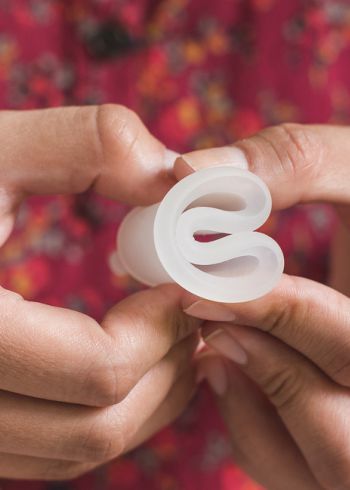Menstrual blood clots are not normal? Myth vs Fact

Myth: Menstrual blood clots are not normal
We have almost 40 crores of menstruating women in India. Menstrual bleeding is a natural biological process with women having uterus and ovaries. Menstruation age for most of the girls falls between 11-15 years, but some might get a bit earlier and some later. Normally it is a 28-day cycle which is an average figure with bleeding typically lasting around 4 to 5 days.
It’s a process when your body gets ready for pregnancy by thickening your uterus lining with the release of an egg from one of your ovaries. The uterus lining is passed, along with blood, out of the body through the vaginal opening.
Once puberty begins, the early follicle matures and releases an egg cell (ovum). Hormones are the chemical transmitters that regulate body functions like the menstrual cycle and body temperature. Hormones also trigger ovulation.
Problem with periods:
Periods are part of every woman’s life. Every menstruation cycle varies in length, amount and frequency but menstrual blood clots are the most scary thing when you see them. Most blood clots during a period are normal, but if you experience large blood clots and notice changes in your period, it may be time to talk to a doctor.
What are blood clots?
During menstruation, the hormones that are present in your body cause the lining of your uterus to begin shedding. During that process, small blood vessels bleed. To prevent your body from losing too much blood, plasma and platelets work together to form blood clots. These blood clots are normal but some may think it is a problem. Though it can be a problem if you notice any usual condition.
Period clots are normal:
Period blood clots are a normal part of your menstrual cycle. But when you notice any changes to the size and amount, it can be a signal that there is some issue with your reproductive health. But there are some situation when you must take medical advice-
- If your period lasts long
- If you notice unusual heavy flow
- bleeding between periods
- If you noticed unusual changes over time
- Excessive pain
- Bacterial infections
- other medical conditions
Expect your doctor to do a pelvic exam. They may also want to do a blood test, a pap test or an ultrasound during your visit.
Problems related to blood clots:
There are many conditions that can cause someone to have abnormally large blood clots or experience a heavier flow than normal. Some include:
- Thyroid disease
- Uterine polyps
- Uterine fibroids
- A bleeding disorder
- Cancer in your uterus or cervix
Keep a track of your periods and other symptoms and if you notice anything which is abnormal seek medical advice instantly.
- Posted in are period clots normal, blood clots, feminine hygiene, menstrual blood clots, menstrual clots, period blood clots













